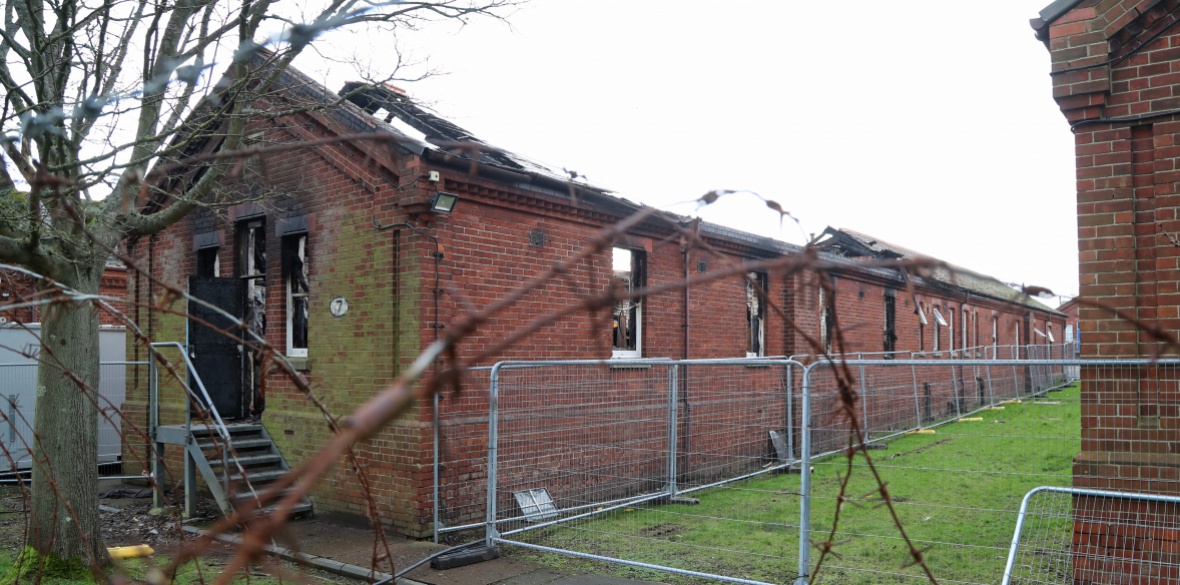This is the last article you can read this month
You can read more article this month
You can read more articles this month
Sorry your limit is up for this month
Reset on:
Please help support the Morning Star by subscribing here
by Bethany Rielly
THE Home Office insisted today that its decision to dump asylum-seekers in squalid and overcrowded army barracks during the pandemic was “reasonable” despite acknowledging higher risks of infection.
Six asylum-seekers have brought a legal challenge against the department, arguing that its decision to house them in Napier Barracks in Kent was unlawful.
The claimants say that they were put at “exceptionally high risk” of catching Covid-19 at the site, where crowded and communal sleeping and eating arrangements resulted in a huge outbreak earlier this year.
Lisa Giovannetti QC, representing the Home Office, told the High Court today that the department “has always accepted and acknowledged that the transmission risk is higher in congregate settings of this sort.”
But she said that the Home Office had taken steps to ensure that no person specifically vulnerable to severe illness or death from Covid-19 was placed in the barracks.
“The secretary of state’s position is that these were being sifted out to be relatively young people in good health.
“It’s not just how high the risk of an outbreak is but how significant is the impact likely to be on numbers … the profile of individuals being placed in this accommodation.”
Ms Giovannetti reasoned that “no-one fell seriously ill or was hospitalised” during the outbreak, adding that in the context of accommodation shortages, the decision to use the site was “reasonable and rational.”
In January, half of the 400 men staying at Napier Barracks contracted Covid-19 following months of warnings about unsafe conditions.
During the outbreak, residents were forbidden to leave the site and said that they felt “abandoned.” It was later reported that a leukaemia sufferer was living in the barracks at this time.
Rubbing further salt into the wound, Ms Giovannetti told the court that there were “advantages” to the squalid site, including the potential for recreational activities and benefits to communal living.
The Morning Star understands that there are no recreational activities in the camp.
On Wednesday the court heard how asylum-seekers at the barracks had witnessed “shocking suicide attempts” and were left without mental health support.
Previously undisclosed documents also revealed that the Home Office had received warnings of “serious” fire risk at the site two months before a blaze broke out.
The two-day trial concluded this afternoon. A judgement is expected in May.










